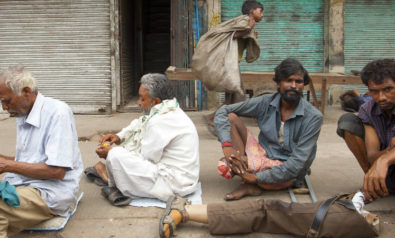With Zika declared as a global health crisis, it is time to understand the potential formation of future epidemics under climate change.
Zika has been declared a global public health emergency by the World Health Organization (WHO). The global community seems to be caught off-guard. Are we ready to roll back this new challenge to humankind that stems from the changing global climate?
The WHO declaration is justified, amid knowledge and data uncertainty on Zika, with the goal being to bring worldwide attention to the problem and quickly establish organized responses and resources to contain the epidemic from spreading.
What is Zika?
Zika is derived from the Zika forest of Uganda, first found in 1947. Experts suspect that the Aedes mosquitos became the host after sucking the blood of monkeys in Zika forest. Such a model of disease transmission has invited greater attention in zoonotic studies due to the significant increase in human-animal interaction today.
This increased human-animal interaction may have led to the emergence of zoonitic diseases—those can be passed between animals and humans—including Ebola that struck Africa in 2014. The dynamic of such interaction is also mediated by vector-related phenomenon such as mosquitos. Aedes mosquitoes transmit known viruses such as dengue, chikungunya and now Zika.
Zika can cause symptoms such as mild fever, headaches and joint-pain. The coincidence of the Zika virus outbreak and the sudden rise in cases of microcephaly—abnormal smallness of the heads—in recent months have led to the possible link between Zika and microcephaly. There was a 2000% increase in birth defects with babies born with smaller heads compared to 2015.
The US Centers for Disease Control and Prevention (CDC) make it clear that until more is known, extra precautionary measures should be taken to protect the most vulnerable groups, especially pregnant women.
Mosquitos and Climate Change
Online, social and visual media are flooded with information that link Zika with climate change. However, even without climate change, mosquitos and vectors in general are sensitive to climatic variation. Escalation of the transmission of dengue often occurs during the wettest months (wet season in the tropics) of the year. The population density of such mosquitos can increase up to nine times higher than the normal months, according to some reports.
Scientists in China have recently shown that the dengue incidences in Guangzhou have been positively correlated with temperature, humidity and rainfall. After stormy days with extreme rainfall, high humidity and water inundation often generate mosquito-breeding sites in Taiwan. In Indonesia, it is well-known that disease and hospitalization incidents are likely to increase with dramatic changes in temperature, relative humidity and precipitation. Warming and wetter conditions may increase waterborne and vector-borne diseases.
Therefore, it is well-known that climate variation and change may bring indirect impacts on health by modifying both natural and built environment that favor disease-carrying mosquitoes. Climate change may trigger drier drought and wetter rainy seasons. The former can often trigger poorer families in developing countries to stock water inside their house, thus inviting mosquitos to breed, while the latter can lead to create favorable conditions for mosquito breeding as well.
Composite Strategies Needed
The good news is that Aedes mosquitos are not new to Asia and the Pacific. Statistics suggest that there are about 390 million dengue cases every year in the planet. Roughly 25% of dengue often manifests with symptoms, and 75 % of the cases occur in the Asia Pacific region.
In fact, globally, there are more than 120 countries known to be dengue endemic. Since Aedes mosquitos are also the host of Zika, Asia and the Pacific are not immune to Zika. In fact, these regions have been recently attacked and reattacked by Zika. However, such an epidemic barely makes international news as we have seen in Brazil today.
Adaptation to the risk of Aedes relies on a control program to reduce the mosquito population before the onset of the wet seasons. Existing innovation and success in malaria and dengue control and prevention in Asia can be capitalized to help governments and communities deal with Zika prevention.
Vector control strategies will need to be planned and managed astutely to systematically reduce mosquito populations. It is quite clear already that elevated dengue and malaria incidence are associated with changing temperature, rainfall and relative humidity. But blaming climate variation and change is not enough. There are other important factors in the distribution of the waterborne and vector-borne diseases associated with Aedes mosquitos and other mosquitos.
 Ermi Ndoen, an Indonesian epidemiologist based at UNICEF Indonesia, with his colleagues at Griffith University in Australia, recently showed an interesting result in Malaria Journal that malaria incidents in Indonesia tend to be distributed in boundary regions than non-boundary regions. One reason could be that the boundaries of regions/districts are the places that are too far away from the mental span of the local rulers and administrators.
Ermi Ndoen, an Indonesian epidemiologist based at UNICEF Indonesia, with his colleagues at Griffith University in Australia, recently showed an interesting result in Malaria Journal that malaria incidents in Indonesia tend to be distributed in boundary regions than non-boundary regions. One reason could be that the boundaries of regions/districts are the places that are too far away from the mental span of the local rulers and administrators.
Furthermore, Didier Musso, a molecular biologist and virologist from the Institut Louis Malardé, Papeete in French Polynesia, recently noted that the Zika virus in Brazil may be linked to the recent pattern of mobility. At least two events were mentioned in his paper, Zika Virus Transmission from French Polynesia to Brazil, published in the Emerging Infection Diseases in October 2015.
The first is the potential transmission via vector (mosquito) during the 2014 FIFA World Cup in Brazil. The second is a similar transmission during Va’a World Sprint Championship canoe race held in Rio de Janeiro, Brazil. Recent Zika transmission via sexual connection in the United States may allow some to speculate that such a mechanism is possible.
Human global mobility and epidemics are not new. As the risk of Zika knows no boundaries, what is now needed is greater cooperation to minimize the spread of the risk and be prepared for the next global epidemic. Malaria experts have often said that mosquitos are the true vampires as they live by sucking blood. Such claims are partially true because the life of the vampire also depends very much on how much policymakers are willing to anticipate and contain the spread of virus and the vectors.
*[This article was originally published by the S. Rajaratnam School of International Studies, a partner institution of Fair Observer.
The views expressed in this article are the author’s own and do not necessarily reflect Fair Observer’s editorial policy.
Photo Credit: Jarun Ontakrai / Crystal Eye Studio / Shutterstock.com
 We bring you perspectives from around the world. Help us to inform and educate. Your donation is tax-deductible. Join over 400 people to become a donor or you could choose to be a sponsor.
We bring you perspectives from around the world. Help us to inform and educate. Your donation is tax-deductible. Join over 400 people to become a donor or you could choose to be a sponsor.
Support Fair Observer
We rely on your support for our independence, diversity and quality.
For more than 10 years, Fair Observer has been free, fair and independent. No billionaire owns us, no advertisers control us. We are a reader-supported nonprofit. Unlike many other publications, we keep our content free for readers regardless of where they live or whether they can afford to pay. We have no paywalls and no ads.
In the post-truth era of fake news, echo chambers and filter bubbles, we publish a plurality of perspectives from around the world. Anyone can publish with us, but everyone goes through a rigorous editorial process. So, you get fact-checked, well-reasoned content instead of noise.
We publish 2,500+ voices from 90+ countries. We also conduct education and training programs
on subjects ranging from digital media and journalism to writing and critical thinking. This
doesn’t come cheap. Servers, editors, trainers and web developers cost
money.
Please consider supporting us on a regular basis as a recurring donor or a
sustaining member.
Will you support FO’s journalism?
We rely on your support for our independence, diversity and quality.



















